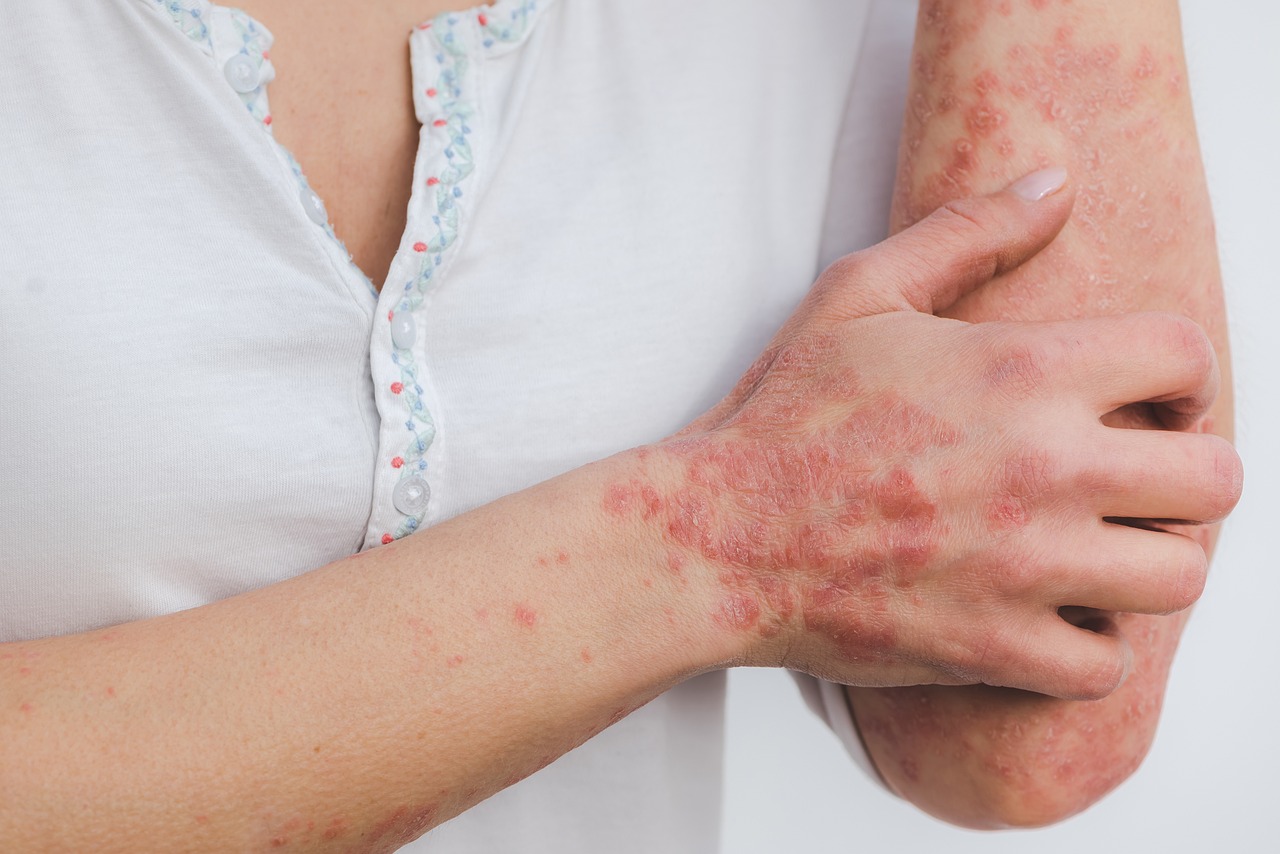
Psoriasis is a chronic autoimmune condition that affects the skin, causing red, scaly patches to develop. The impact of psoriasis on a person’s life can vary depending on the severity of their condition. Here are some aspects of how psoriasis patients may live:
- Medical management: Psoriasis patients often work closely with healthcare professionals, such as dermatologists, to manage their condition. Treatment options may include topical creams, oral medications, light therapy, or injectable biologic drugs. Regular medical appointments and adherence to prescribed treatments are essential.
- Skin care: People with psoriasis usually develop a daily skincare routine to manage their symptoms. This may involve using moisturizers, gentle cleansers, and medicated creams or ointments to reduce inflammation and itching. Avoiding triggers such as harsh soaps, extreme temperatures, and certain fabrics can help minimize flare-ups.
- Lifestyle adjustments: Psoriasis patients may need to make certain lifestyle changes to manage their condition effectively. This can include avoiding smoking and excessive alcohol consumption, as both can exacerbate symptoms. Adopting a healthy diet and maintaining a regular exercise routine can also have a positive impact on overall well-being.
- Emotional well-being: Psoriasis can have a significant impact on a person’s mental and emotional well-being. Living with a visible skin condition may lead to feelings of self-consciousness, embarrassment, or even depression. Support from loved ones, joining support groups, or seeking professional counseling can help individuals cope with these challenges.
- Work and social life: Psoriasis can sometimes affect a person’s ability to work, particularly if their condition is severe or if it affects highly visible areas of the body. However, many individuals with psoriasis are able to maintain successful careers by managing their symptoms effectively and addressing any workplace accommodations they may require. Building a strong support network and educating colleagues and friends about psoriasis can also help create understanding and acceptance.
- Education and advocacy: Many psoriasis patients take an active role in educating themselves about their condition and advocating for improved awareness and treatments. They may participate in clinical trials, engage in patient support organizations, or share their experiences to raise public awareness and reduce stigma associated with psoriasis.
It’s important to note that psoriasis affects individuals differently, and the severity and impact of the condition can vary greatly from person to person. Consulting with healthcare professionals and finding a personalized approach to managing the condition is key to living well with psoriasis.
See More on Video

The Psoriasis Strategy™ By Julissa Clay This eBook is known as a reliable source to help you in getting your psoriasis cured day by day. Thousands of people have used it to cure their irritable and annoying skin condition by following the instructions provided in this eBook.